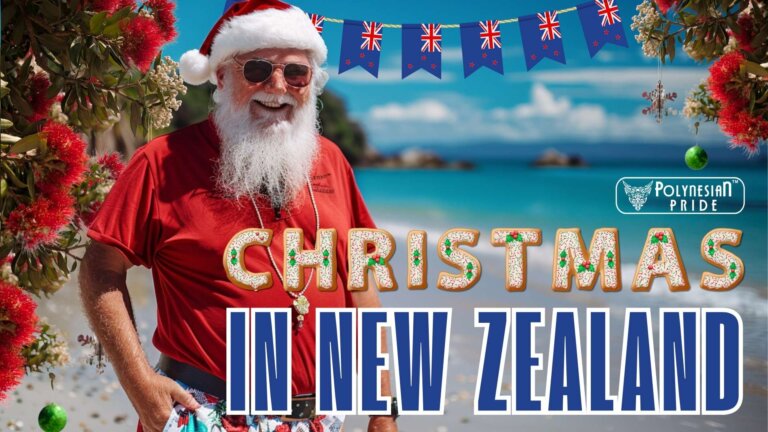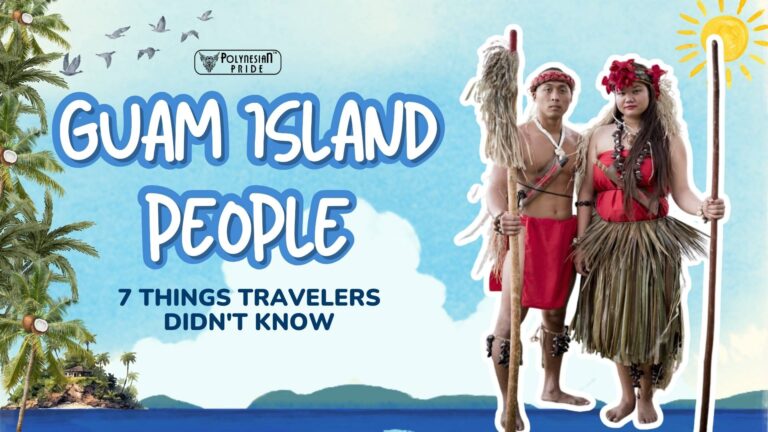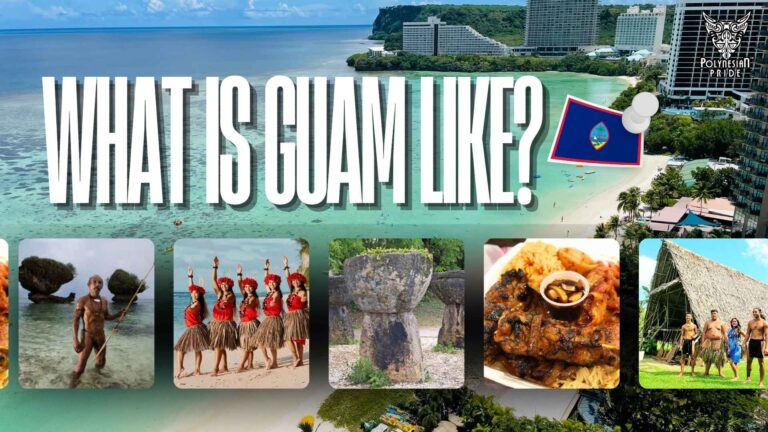Explore Intriguing 15+ Vanuatu Facts: What You Need to Know

Introduction
Unlock the secrets of Vanuatu with these captivating facts about this exotic archipelago in the heart of the South Pacific. Known for its rich cultural tapestry and breathtaking landscapes, Vanuatu is a treasure trove of fascinating stories and hidden wonders. From its indigenous people’s vibrant traditions to its untouched islands’ pristine beauty, each fact about Vanuatu reveals a new layer of this remarkable destination.
Immerse yourself in these intriguing Vanuatu Facts and discover why this paradise is like no other.
15+ Vanuatu Facts: What You Need to Know
1. Cannibalism in Vanuatu.
One of the scariest Vanuatu culture facts is that the islands of Vanuatu were infamous for their history of cannibalism. When the first British Missionaries arrived in 1839, they met a grim fate, being killed and consumed on the island now called Erromango. Newcomers who ventured to the island seeking conflict with the Vanuatu bush tribes or desiring to claim their women would often find themselves captured and subjected to a brutal cooking ritual.

The process involved digging a hole in the ground, placing hot stones within it, dismembering the person, laying the pieces on top, adding yams and taro, inserting more hot rocks, and covering the concoction with banana leaves to retain steam. This macabre feast required a cooking time of three to five hours, with the village chief always getting to eat the victim’s head.

Anthropologists report that the last recorded act of cannibalism in Vanuatu occurred as recently as 1969. Although cannibalism is no longer practiced, traditional cooking methods continue to be passed down through generations.
2. Vanuatu Facts: Vanuatu is considered the most dangerous nation on Earth
The 2015 World Risk Report, prepared by the United Nations University for Environment and Human Security (UNU-EHS), assessed the risk levels of 173 countries in terms of natural disasters such as earthquakes, storms, floods, droughts, and rising sea levels. Vanuatu ranked first with a risk percentage of 36.43%, surpassing Tonga, the Philippines, Guatemala, and Bangladesh.

Vanuatu facts experiences more than 2000 seismic events annually, making it highly susceptible to natural disasters, including cyclones, tsunamis, volcanic eruptions, and earthquakes.
3. Vanuatu Facts: A tribe exists that venerates Prince Philip.

One of the fascinating Vanuatu facts is that a tribe exists that venerates Prince Philip. The Prince Philip Movement originated in Vanuatu following a visit by the Queen and the Duke in 1974. It venerates Prince Philip as a descendant of a spiritual ancestor from Tanna. The movement was initiated by a war canoe paddler who interacted with Prince Philip during the royal yacht Britannia’s visit to Port Vila in 1974. This individual believed Prince Philip to be the ‘true messiah,’ leading to the movement’s establishment, which currently has a presence on Facebook. Over the years, Prince Philip has engaged with the tribe, even exchanging gifts such as a signed portrait.
4. Vanuatu Facts: Vanuatu invented bungee jumping.

On the small island of Pentecost in Vanuatu, when the yam crop begins to sprout in early April, locals construct wooden towers that soar between 20-30 meters high. From then until the end of May, village boys and men partake in a ritual called Nanggol. They dive from these precarious wooden structures with only vines tied to their ankles. Regarded as the precursor to bungee jumping, Vanuatu has even sought royalties from modern adventure companies because of appropriating their tradition. Numerous TV and filmmakers, including National Geographic, have documented this tradition.
5. One of the world’s most sought-after dive sites can be found in Vanuatu.

Renowned for its exceptional dive sites, Vanuatu is mainly celebrated for President Coolidge, a sunken luxury liner resting 650 feet deep off Espiritu Santo. Initially serving as a troop ship during World War II, this grand vessel met its demise in 1942 when it struck two American mines in Santo Harbour. Diving enthusiasts are drawn to this acclaimed wreck for its fascinating remnants, including intact chandeliers, a preserved swimming pool, cannons, trucks, and Jeeps.
Moreover, the waters surrounding Vanuatu boast a rich diversity of marine life, from vibrant coral reefs to tropical fish and even sharks. Scuba diving is highly recommended, and numerous dive operators are available to guide you to the most captivating underwater locations.
6. Vanuatu Facts: Vanuatu is the world’s most linguistically diverse nation.
One of the most unique Vanuatu Facts is that Vanuatu stands out as the most linguistically diverse country per capita globally, boasting over 100 languages within its borders. Among these languages, a unique form of pidgin English known as Bislama holds significant prevalence. Serving as a lingua franca in Vanuatu, Bislama facilitates communication between individuals educated in English and those educated in French. For instance, expressions like “Mi no savee” convey “I don’t understand,” while a seagull is humorously referred to as “pigeon blong solwota,” translating to a “saltwater pigeon.”
7. Vanuatu is home to the world’s most accessible volcano.
One of the most interesting Vanuatu facts is that Vanuatu has 9 active volcanoes among its 83 islands. This count doesn’t even include the numerous active underwater volcanoes in the surrounding seas. Among these volcanic marvels, Mount Yasur on Tanna Island is the most easily accessible active volcano globally. A trip to Vanuatu would be complete with immersing yourself in this awe-inspiring natural spectacle.

As you approach this fiery mountain of molten rock, you will traverse through fields of smoldering black ash, accompanied by the haunting sounds of volcanic rumbles, ultimately reaching the glowing crater rim. The sights and scents are truly extraordinary, offering a once-in-a-lifetime experience. The violent yet mesmerizing beauty of Mount Yasur is an unparalleled encounter that is not to be overlooked. Due to ongoing volcanic activity, Vanuatu is gradually rising approximately 2 centimeters per year, a stark contrast to the slow submersion experienced by other Pacific island nations.
8. Flying fox – Dietary staple among the Ni-Van

The flying fox, often mistaken for a fruit bat, is a nocturnal creature, meaning they are primarily active at night and seldom seen during the day. These vocal little creatures have a diet consisting of fruits and flowers. Traditionally, they have been a staple diet among the Ni-Van. Therefore, while dining at a restaurant in Vanuatu, don’t be surprised to find a flying fox featured on the menu.
9. The people of Vanuatu are kind and curious
One of the reassuring Vanuatu facts is that the Vanuatu people are esteemed for their openness and friendliness towards visitors. Despite the cultural diversity and the utilization of over 100 indigenous languages across the island, guests are consistently greeted with a warm reception and exceptional hospitality from the locals. Visitors’ genuine affection and reception are evident through the locals’ smiles and waves, often prompting impromptu interactions and conversations.

Their curiosity about different cultures aligns with their eagerness to share aspects of their vibrant heritage. It is customary to be welcomed into locals’ homes for a meal, cultural demonstrations, or to participate in festivities and rituals. Hospitality is deeply ingrained in the Vanuatu culture, creating an immediate sense of comfort for visitors. The Vanuatu people’s cordial, welcoming, and open-hearted demeanor makes travelers feel embraced and compelled to revisit Vanuatu repeatedly.
10. Vanuatu Facts: Vanuatu boasts a rich historical background
The islands of Vanuatu have a deep-rooted history, with evidence of human habitation dating back thousands of years, as the oldest archaeological findings date back to 2000 BC. In 1605, Portuguese explorer Pedro Fernández de Quirós made the initial European contact with the islands, mistakenly believing it to be part of Terra Australis. The European settlement of the islands commenced in the late 18th century following British explorer James Cook’s visit during his second voyage, which he named the New Hebrides.

In 1887, a French-British naval commission took charge of administering the islands, leading to the establishment of an Anglo-French Condominium on the New Hebrides in 1906. During World War II, the Efate and Espiritu Santo islands served as strategic allied military bases. By the 1960s, the Vanuatu people initiated efforts towards self-governance and independence, culminating in full sovereignty being granted by both European powers on July 30, 1980. Vanuatu became a member of the UN in 1981 and joined the Non-Aligned Movement in 1983.
11. 82% of Vanuatu’s people are Christian
Christianity is the predominant faith in Vanuatu. By 2020, around 300,000 individuals will communicate using approximately 145 different languages across the island nation. Roughly 82% of Vanuatu’s population identifies as Christian. It’s estimated that 28% are Presbyterian, 12% are Roman Catholic, 15% are Anglican, and 12% belong to the Seventh-day Adventist Church. Various groups that collectively make up 15% include the Church of Christ, the Apostolic Church, Assemblies of God, The Church of Jesus Christ of Latter-day Saints, Jehovah’s Witnesses, and several Protestant sects.

12. Mount Tabwemasana is considered the highest mountain in Vanuatu

Mount Tabwemasana is the tallest mountain in Vanuatu and ranks among the highest peaks in the Pacific region. Standing at 1,879 meters (6,165 feet), it rises significantly above the nearby mountains and offers stunning vistas towards the Coral Sea to the east. Situated on the remote western shore of Espiritu Santo Island, Mount Tabwemasana features two summits, and local legends suggest that these peaks, representing male and female, unite in an embrace during the night.
13. Approximately 74% of individuals aged 15 to 24 in Vanuatu are literate.
According to statistics provided by UNESCO, the approximate literacy rate among individuals aged between 15 and 24 years is around 74%. This figure highlights a significant aspect of educational attainment among young people in this age group. Additionally, there has been a noticeable trend in primary school enrollment figures over the years. For instance, the percentage of children enrolled in primary education increased from 74.5% in 1989, showing steady growth to reach 78.2% in 1999. This upward trend continued as it saw an impressive rise to 93.0% in 2004. However, after reaching its peak, the enrollment rate experienced a decline, dropping to 85.4% by 2007.
The proportion of students successfully finishing their primary education decreased from 90% in 1991, which indicates a high level of educational achievement, to a much lower rate of 72% by 2004 and up to 78% in 2012. It still reflects challenges within the educational system that must be addressed for further improvement.

14. Football is the most popular sport in Vanuatu
One of the Vanuatu fun facts is that Vanuatu people love to play football and practice this sport very often. Vanuatu joined FIFA and the OFC in 1988. Vanuatu boasts one of the leading training programs in Oceania, especially for younger players. This Melanesian country was selected as one of six nations worldwide for a FIFA pilot initiative that identifies young talents for full-time training at the national academy. During this two-year program for athletes aged 15 to 17, attention is given to the possibility of continuing their education or vocational training.

The men’s national football team has yet to qualify for the World Cup. They have been runners-up in both the OFC Nations Cup and the South Pacific Games.
15. There have been tropical storms in Vanuatu
In March 2015, Cyclone Pam struck Vanuatu as a Category 5 severe tropical cyclone, leading to fatalities and significant destruction across all the islands. By March 17, 2015, the United Nations reported that 11 people had died (six on Efate and five on Tanna), with 30 individuals injured; these figures were anticipated to increase as more isolated islands provided updates. Ralph Regenvanu, the lands minister of Vanuatu, remarked, “This is the most catastrophic disaster to impact Vanuatu in recorded history.”
In April 2020, Cyclone Harold passed through Luganville in Espiritu Santo, resulting in considerable material damage there and affecting at least four other islands.
Conclusion
In summary, the intriguing Vanuatu facts offer a glimpse into the vibrant soul of this Pacific paradise. From its ancient customs and dramatic landscapes to the welcoming spirit of its people, each fact about Vanuatu reveals something extraordinary. Whether you’re a curious traveler or a history enthusiast, these Vanuatu facts enrich your understanding and appreciation of this remarkable island nation. Dive deeper into the wonders of Vanuatu, where every fact tells a story and every story adds to the allure of this unique destination.
Frequently Asked Questions (FAQs)
How old is Vanuatu?
Vanuatu, formerly referred to as New Hebrides during the period of condominium rule, has been settled for more than 4000 years. The island was first encountered by Europeans in May 1606 when Spanish explorer Captain Pedro Fernandez de Quiros arrived.
What are interesting Vanuatu facts?
Vanuatu boasts 113 distinct languages and innumerable dialects, making it one of Earth’s most culturally diverse countries.
What was Vanuatu known for?
Kava, beef, copra, timber, and cocoa are the most important exports; Australia, New Caledonia, Japan, and New Zealand are the main export destinations.
What language did Vanuatu speak?
The Republic of Vanuatu’s national language is Bislama. The official languages are Bislama, English, and French. English and French are the principal languages of education.
What is the biggest problem in Vanuatu?
Like other small island developing states in the Pacific, Vanuatu encounters serious threats to its existence from rising sea levels, ocean acidification, and a growing frequency and intensity of natural disasters. It is at the forefront of the climate emergency.

I am Leilani Miller – I research focusing on Vanuatu – volcanic landscapes, blue holes, coral reefs & rainforests. I have over five years of experience researching and sharing insights on tourism and environmental activism. Explore and experience without limits through my latest article.
Contact information:
Email: [email protected]
Tel: +1 (808) 555-1528






